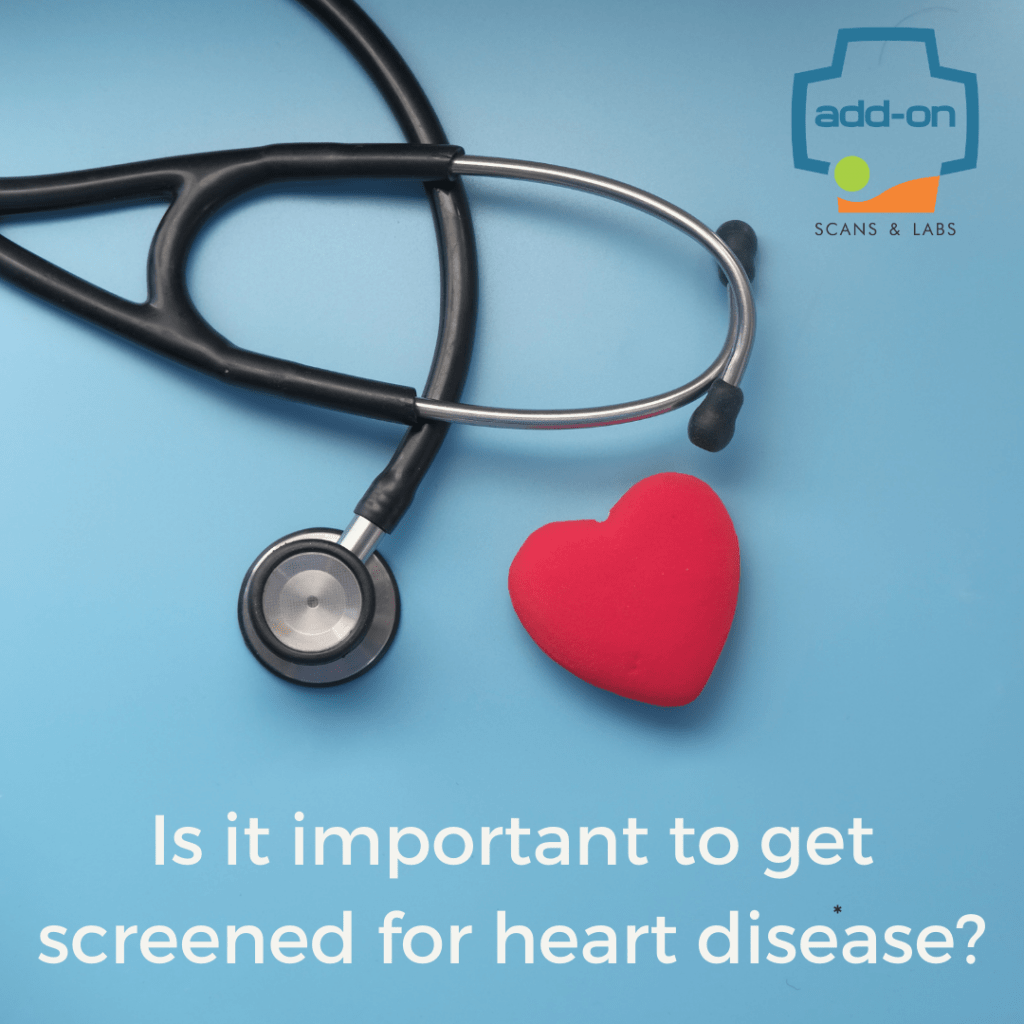IS IT IMPORTANT TO GET SCREENED FOR HEART DISEASE
Heart disease is a leading cause of death worldwide. It affects not only the heart but also other major parts of the body. Early detection can prevent complications such as heart failure, stroke, kidney disease and artery disease.
Are you asking yourself if you are at risk?
Here are some of the major symptoms and risk factors for cardiovascular disease (often used interchangeably with heart disease):
- Chest pain or discomfort
- Slow or racing heartbeat
- Shortness of breath
- Dizziness and fatigue
- Swelling in your feet or abdomen
The health condition of each individual is varied. These symptoms are the only indications and need a doctor to give the right diagnosis. It has been identified that the major risk factors involve:
- Unhealthy lifestyle such as smoking, physical inactivity, a diet high in fat
- Unmodifiable factors such as the family history of premature coronary artery disease (CAD) and advancing age
- Diseases like high blood pressure (hypertension), high blood cholesterol (hyperlipidemia), obesity and/or diabetes
Even if you are not at high risk for heart disease, getting the following Routine screening tests which are a part of the heart-health screenings are recommended by health care specialists:
- Body mass index (BMI) measurement, based on weight or waist circumference
- Blood pressure and cholesterol tests
- Blood glucose test
If you are at moderate and high risk for heart disease, these additional tests may be needed for cardiovascular evaluation:
- Electrocardiogram (ECG): Small, sticky electrodes are applied to your chest and attached to a machine known as an ECG machine.
- Exercise Treadmill Test (TMT): Also called a cardiac stress test or exercise electrocardiogram. Involves walking on a treadmill or pedaling a stationary bike, while heart rate and rhythm, blood pressure, and the electrical activity of the heart are monitored using ECG.
- Echocardiography: Using an ultrasound machine to create moving images of your heart. In stress echocardiography, an ultrasound of the heart is performed before and after you have exercised or taking medication that stimulates the heart.
- Coronary Artery Calcium Scoring: Uses a computed tomography (CT) scan to measure the amount of calcium in the coronary arteries, which is the indicator of the amount of plaque in the arteries.
- Coronary CT angiography (CTA): Uses CT scan and contrast material (dye) to create dimensional images of the coronary arteries to determine the exact location and extent of plaque build-up.
- Nuclear stress test: A small amount of radioactive dye is injected into the bloodstream, where it travels to the heart. An imaging machine is used to take pictures to learn blood is flowing through the heart.
- Coronary Catheter Angiography: A small tube or catheter is inserted and threaded through an artery to your heart. Contrast dye is injected through the catheter while X-ray pictures of your heart are taken, allowing you to see if your coronary arteries are narrowed or blocked.
Many other tests are also available to examine your heart’s health and function. Along with the diagnosis and other treatments make sure to have a healthy lifestyle. If you think you are at a risk or might have a symptom, talk to your doctor or our heart specialist to learn which screenings and tests you should get.
Schedule a Heart Health Check-up with us to keep up good health. We also have specialized consultations specific to the need. Call or WhatsApp us today at +91-9900811118 to know more

